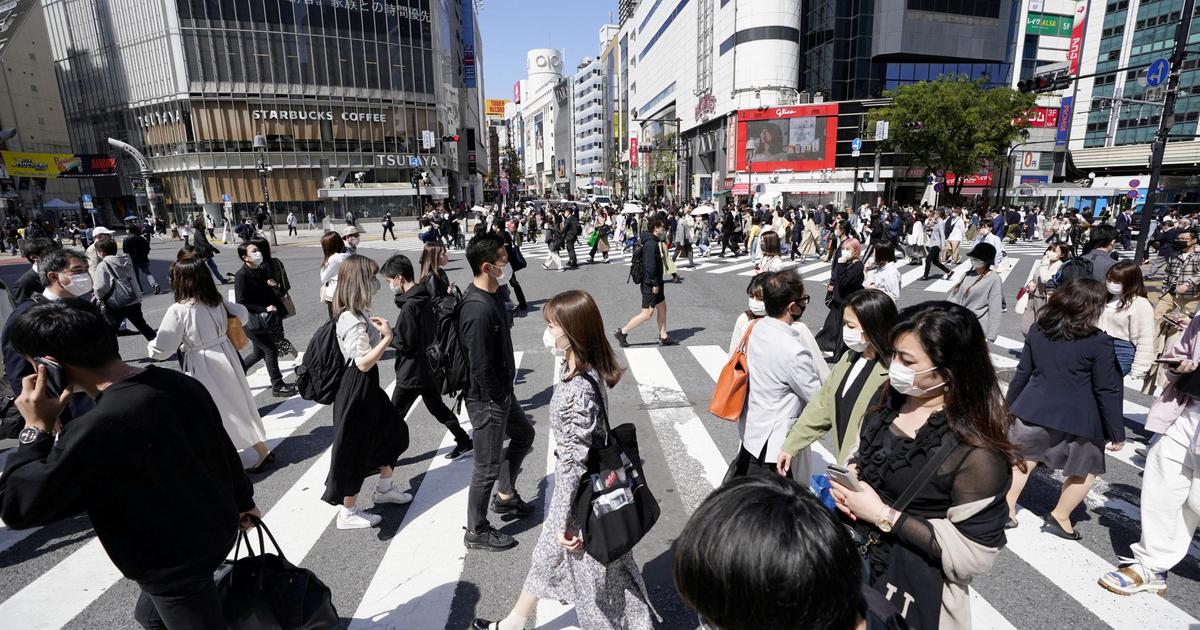By Chantal Da Silva -
NBC News
Europe is once again at the epicenter of the COVID-19 pandemic and experts say
that should serve as a "warning" to the United States
and other countries about the "incessant" nature of the virus.
The countries of the European continent have seen how contagions skyrocket.
In October there was an increase of more than 50%, a worrying trend that has continued this month as winter approaches.
[A judge finds that Abbott broke the law and decides that Texas schools can require masks]
Dr. Hans Kluge, director for the European region of the World Health Organization, warned on 4 November that Europe was "back at the epicenter of the pandemic," and his words were prescient.
On Friday, the World Health Organization reported that
nearly 2 million cases were recorded in Europe in the previous week
, the most the region has seen in a single week since the pandemic began.
In recent weeks, Germany reported a daily record number of new infections with more than 50,000, according to data from Johns Hopkins University.
California Second State to Undertake Booster Vaccination for All Adults
Nov. 13, 202102: 13
The Netherlands also reported more than 16,000 cases, the highest number in the country since the pandemic began, prompting the government to order a partial shutdown on Saturday that will last at least three weeks.
As cases spiked towards the end of last month, Belgium reimposed some restrictions to tackle the virus, including a requirement to wear masks in public places.
A COVID-19 pass must also be shown to enter bars, restaurants, and gyms.
The document shows that you are fully vaccinated, have had a recent negative test, or have recently recovered from the disease.
Nonetheless, the country registered more than 15,000 new cases on Monday.
[Chicago suspends classes to encourage vaccination]
Despite the increase, daily death rates in all three countries have remained relatively stable compared to previous peaks.
Experts attribute high vaccination to weakening the link between the number of cases and hospitalizations and deaths
.
"Fortunately, the high vaccination coverage there greatly limits the number of deaths and hospitalizations," Tom Wenseleers, an evolutionary biologist and biostatistician at KU Leuven University in Belgium, told NBC News by email.
Justice maintains the blockade of the vaccination mandate for companies with more than 100 employees
Nov. 13, 202100: 24
Belgium reported hundreds of deaths at the start of the pandemic and again last fall when a second wave of cases forced a national shutdown.
The country has seen "proven hospital capacity" in recent weeks, Wenseleers said.
But the deaths appear to have been disassociated from the high case rates, he added.
'Truly disastrous'
However, the same cannot be said for Eastern European countries, where, according to Wenseleers, the situation is "truly disastrous."
In the last three weeks, Romania, with 591;
Bulgaria, with 334;
and Latvia, with 64, have reported record daily deaths, according to data from Johns Hopkins.
The number of cases has also increased.
[Dodger Stadium reopens as COVID-19 testing center]
Wenseleers calls this "worrisome" and believes that the low acceptance of the vaccine and the indecision of the people are, in large part, to blame.
"It is not due to the lack of vaccines," he said, noting that the European Union acquired vaccines jointly, so that the 27 member states "were able to buy equivalent quantities."
"Despite having access to vaccines, these countries failed to convince their populations to get vaccinated," he added.
A worker at the University Emergency Hospital in Bucharest, Romania, covers a coffin with the body of a person who died of COVID-19 on November 8, 2021. In Romania and other Eastern European countries, infections have been increasing in the last weeks.VADIM GHIRDA / AP
At least one in three people in Eastern European countries do not trust health care, compared to 18 percent of people who, on average, distrust immunization in the rest of the European bloc, according to a survey by the European Commission known as Eurobarometer, reported by Reuters.
Romania and Bulgaria are among the countries with the lowest rates of vaccine consumption on the entire continent, according to the EU Vaccine Tracker.
[COVID-19 Evidence by Migrants Caravaning to the US from Mexico Reject]
The latest data shows that less than 23% of the adult population in Bulgaria has been fully vaccinated against COVID-19, while just over a quarter received at least one injection.
In Romania, about 34% of the population over 18 years of age is fully vaccinated, while almost 38% have received at least one dose.
The Eurobarometer survey showed that people in these two countries were among the least likely to express enthusiasm for getting vaccinated.
The vaccine tracker also showed that other Eastern European countries have low vaccination rates compared to their western neighbors.
Illinois, Minnesota and Vermont report a 50% increase in COVID-19 cases.
Nacho Lozano analyzes
Nov. 12, 202102: 07
This "means that the high case rates there translate [into] a very high number of deaths," Wenseleers said.
Approaching the first winter with the delta variant, Danny Altmann, a professor of immunology at Imperial College London, said that “I was not sure if people in Eastern Europe realized how severe the pandemic was at the time. delta ”.
"It's relentless," Altmann said.
As long as some Eastern European countries are "at the extreme of vaccinations (...)
there is no possibility of dealing with this pandemic under these conditions,
" he explained.
[A brothel in Vienna offers free admission to customers who want to get vaccinated against COVID-19]
In Austria, a European state that has long been a bridge between east and west, the government on Sunday ordered a nationwide lockdown for unvaccinated people in an attempt to slow the rapid spread of the coronavirus in the country.
The measure means that unvaccinated people over the age of 12 will be banned from leaving their homes starting at midnight on Sunday, except for basic activities like working, buying food, going for a walk or receiving injections.
Election officials in Sofia, Bulgaria, dressed in suits dressed in protective suits against COVID-19, visited the homes of sick people on Sunday, November 14, to cast their vote in the elections of a new parliament and president.
Bulgaria currently registers an average record number of 334 deaths per day from COVID-19.Valentina Petrova / AP
"It is our job as the Austrian government to protect the people," Chancellor Alexander Schallenberg told reporters in Vienna.
"Therefore, we decided that as of Monday ... there will be a blockade for the unvaccinated."
Eric Feigl-Ding, an epidemiologist and senior fellow at the Federation of American Scientists, said
the high death rates should be "a warning" to other nations with low vaccination rates.
While Feigl-Ding believes that the most effective approach is one on multiple fronts, including measures such as mask use and social distancing, she explained that vaccines and booster doses are critical to preventing the spread of COVID-19.
[Government officials push to extend booster vaccination to all adults]
Wenseleers agrees with this, saying that Americans should be vigilant about the unfolding situation in Europe.
US states, with high or low vaccination rates, could look at the number of cases in Europe and take it as
"a sign that the United States could see a resurgence as well," he
said.
On both sides of the Atlantic, "convincing as many people as possible to get vaccinated should be the highest priority," along with "setting up booster campaigns" for those most at risk, he said.









/cloudfront-eu-central-1.images.arcpublishing.com/prisa/BTHDUOM6GSCJU5BVV7CBEATLYQ.jpg)